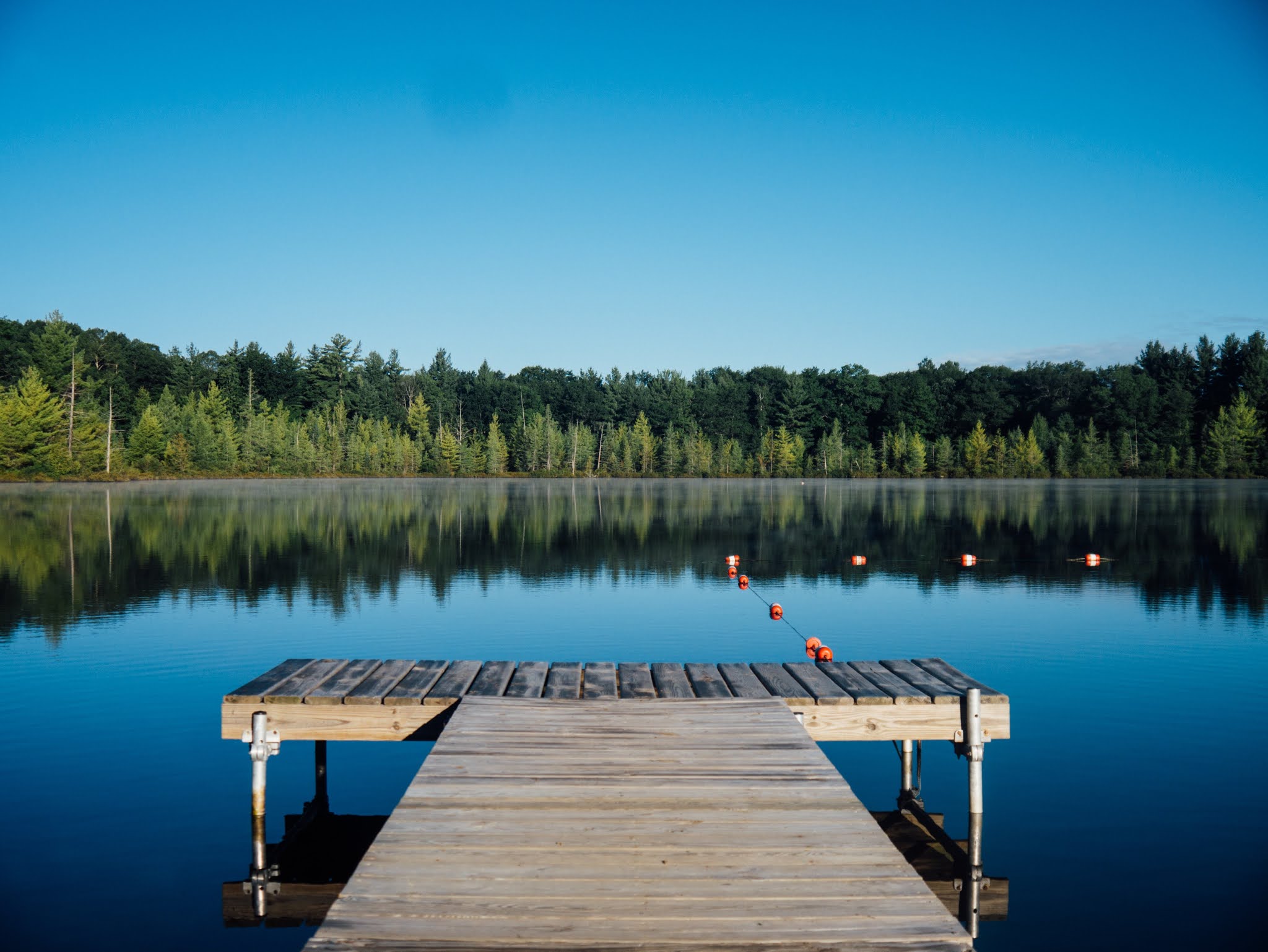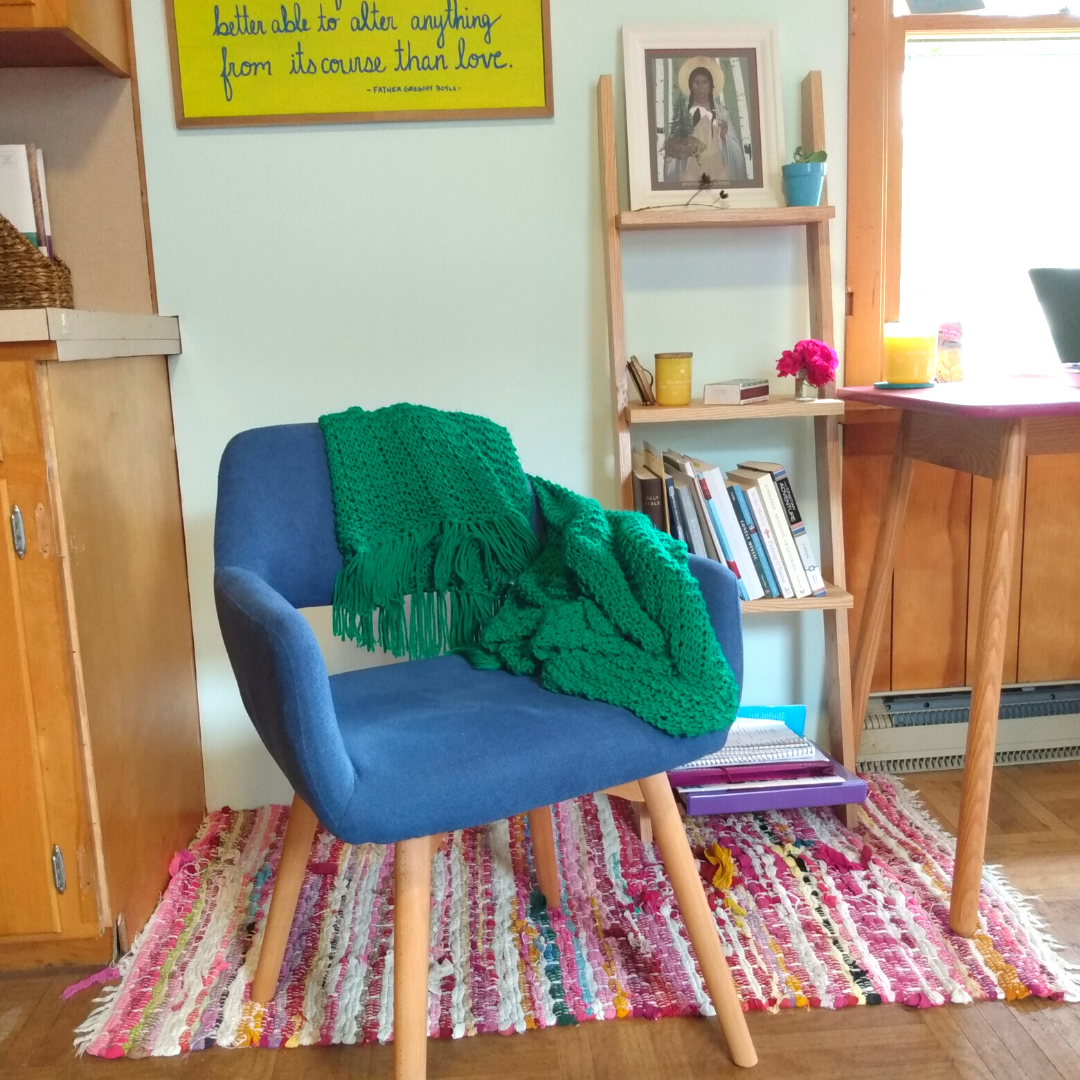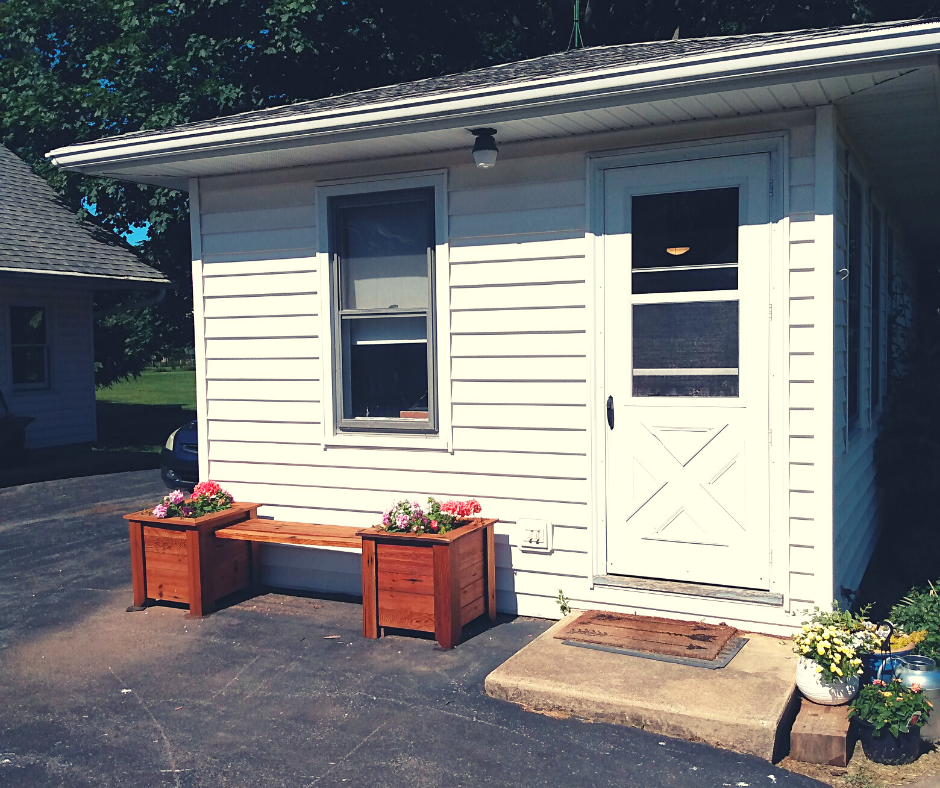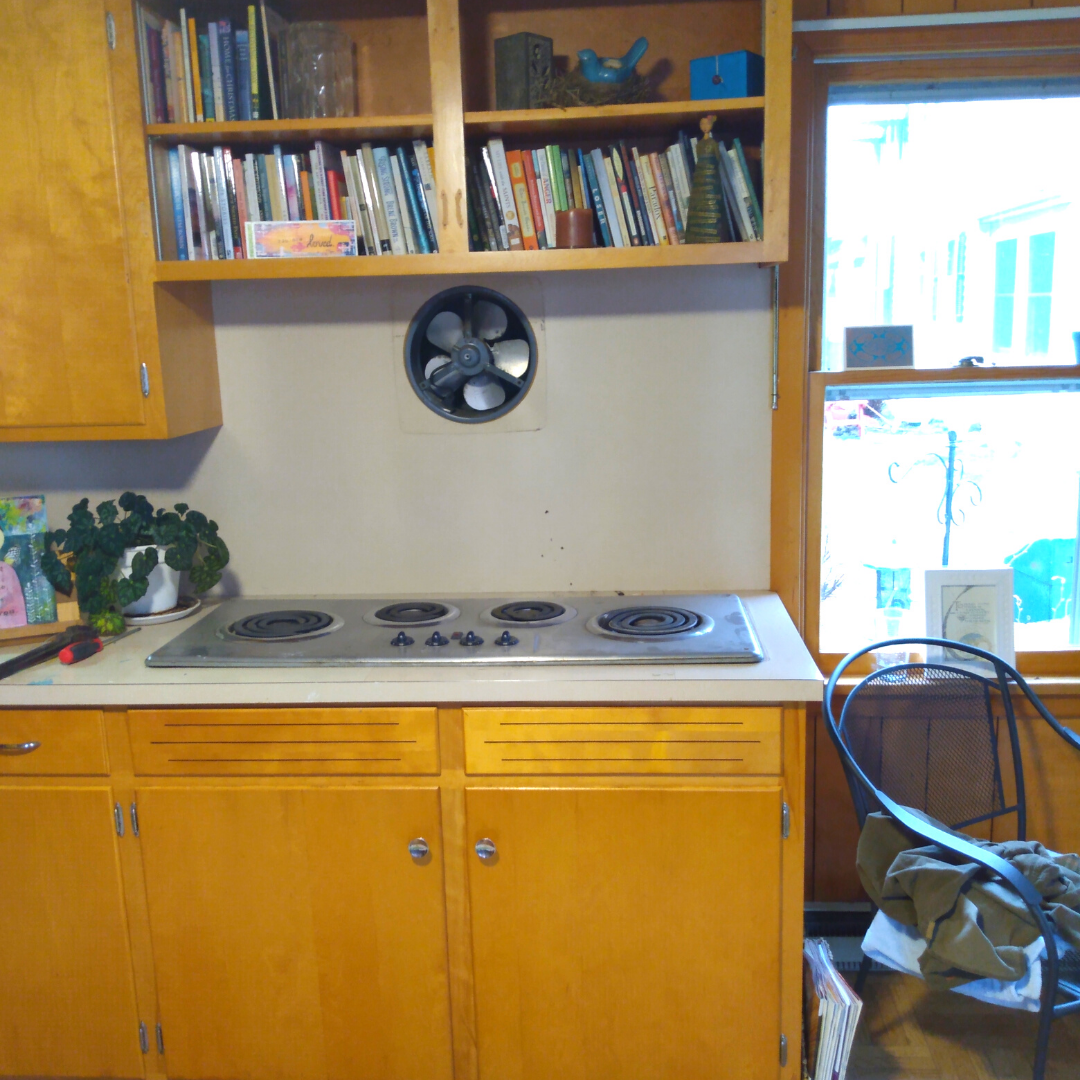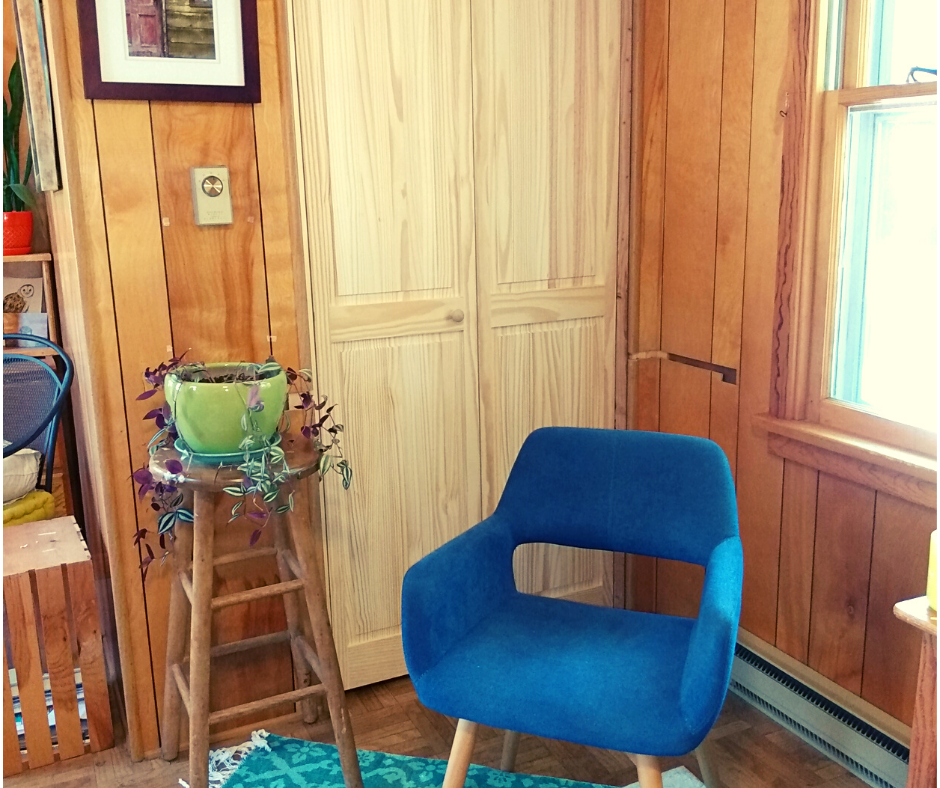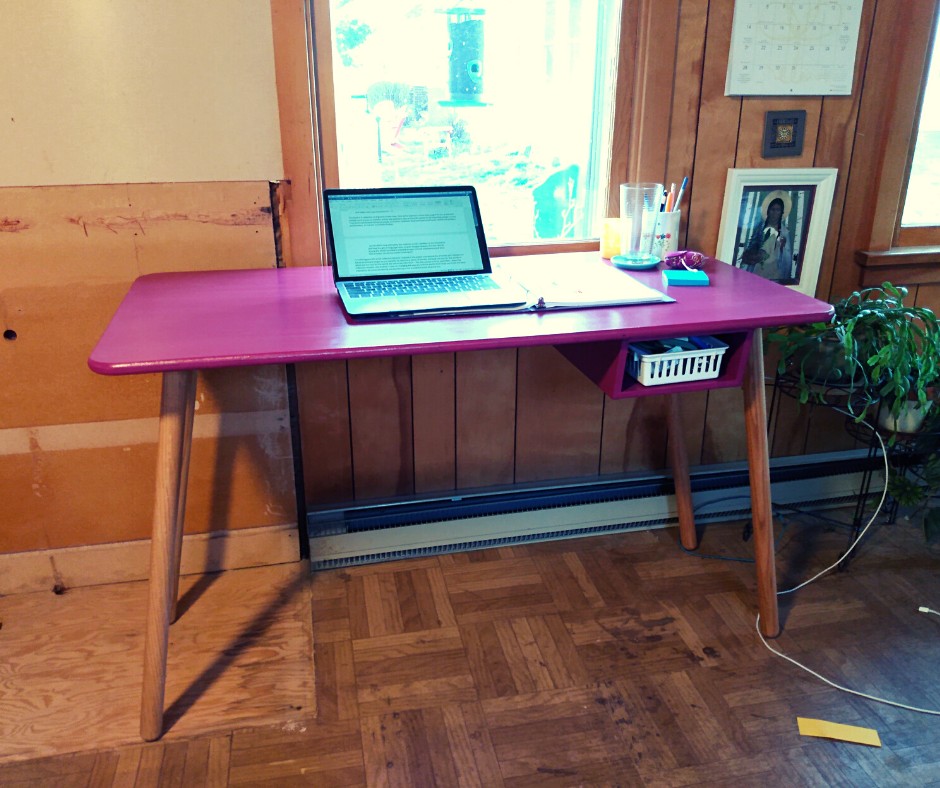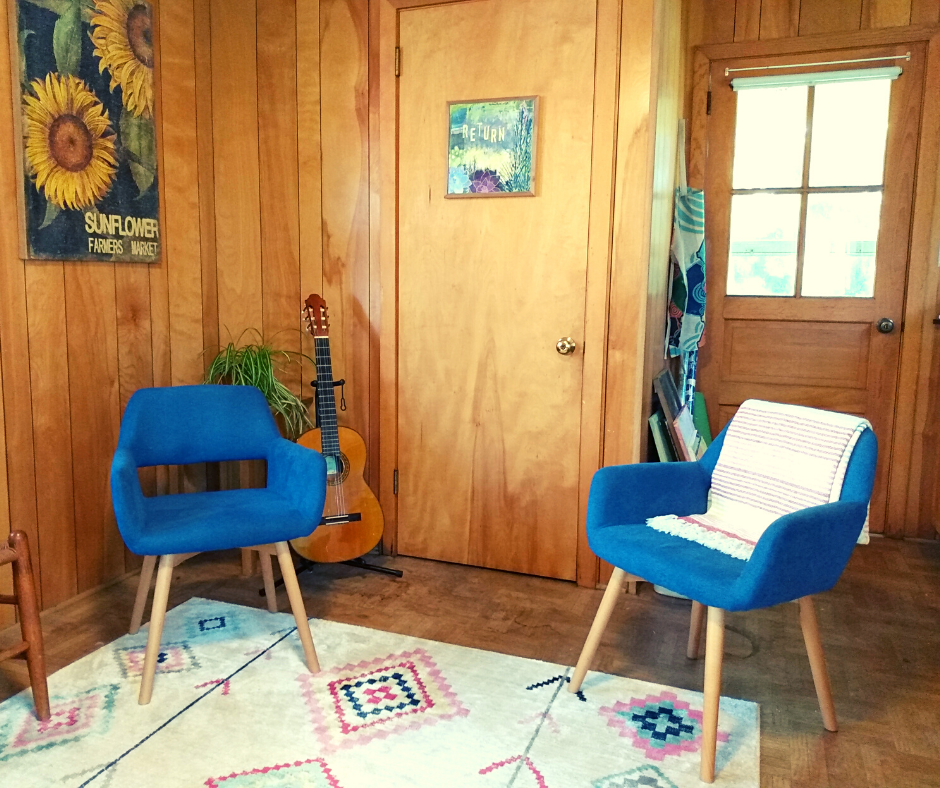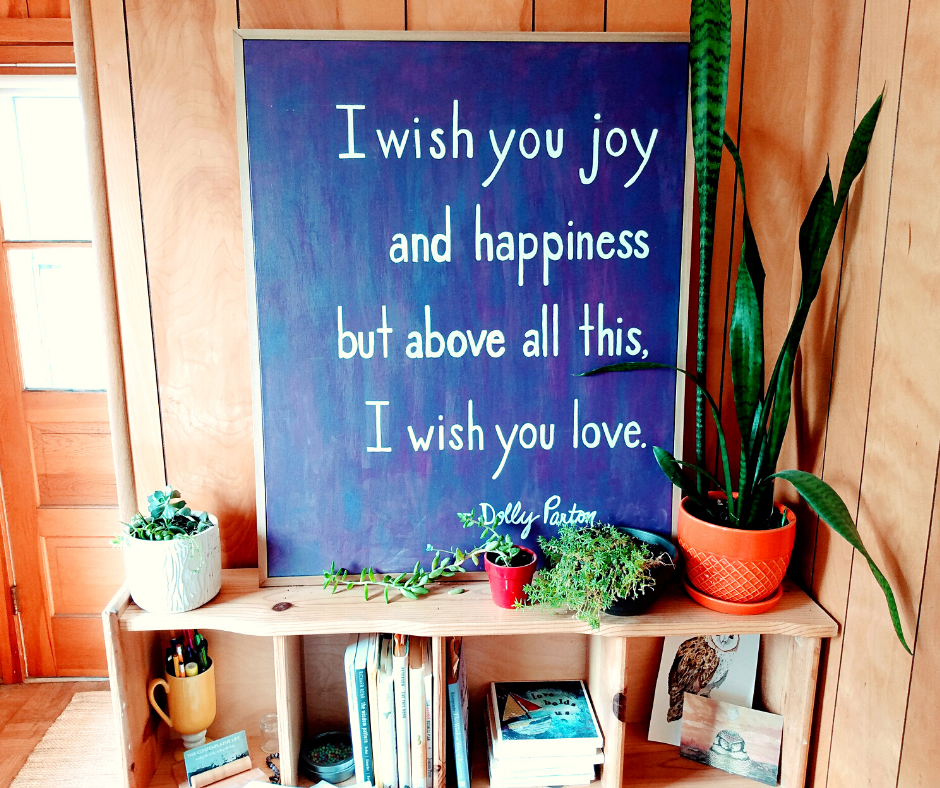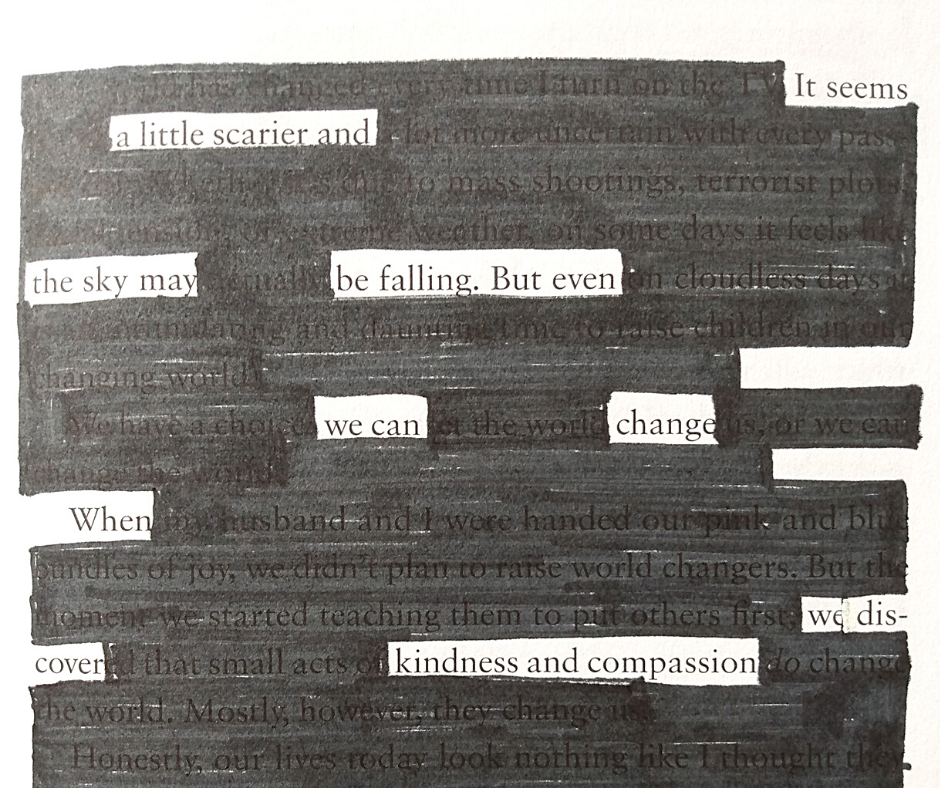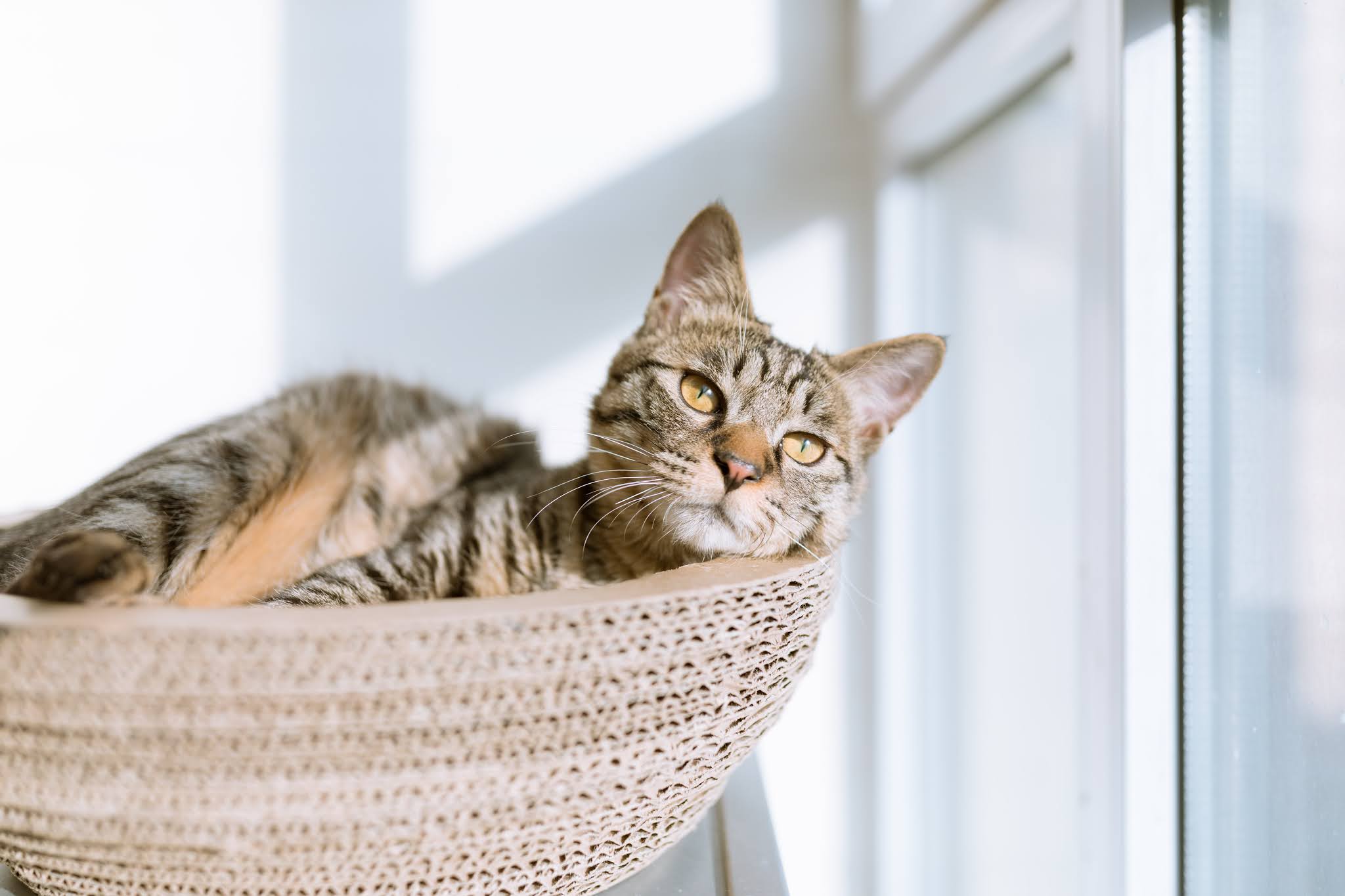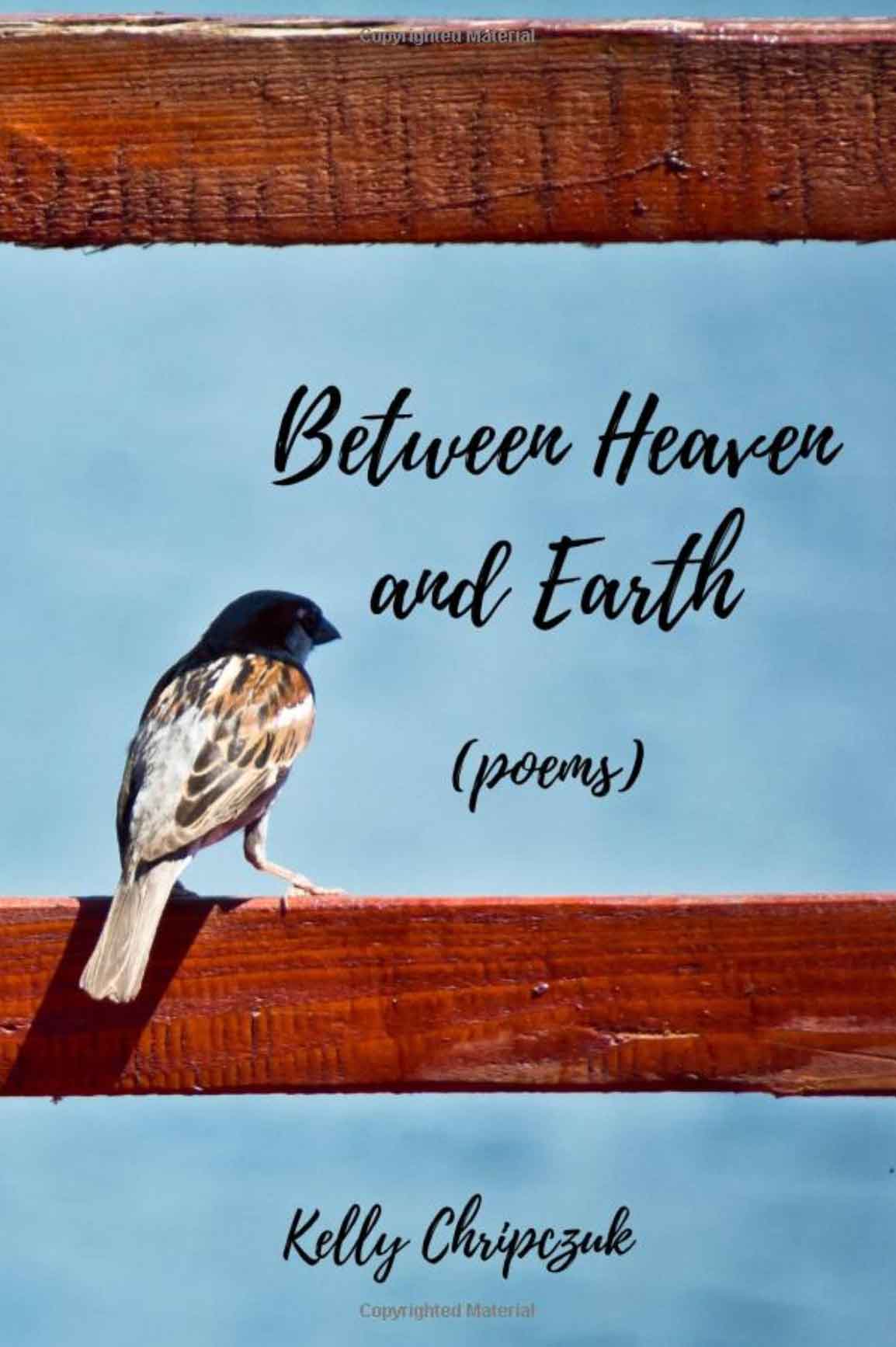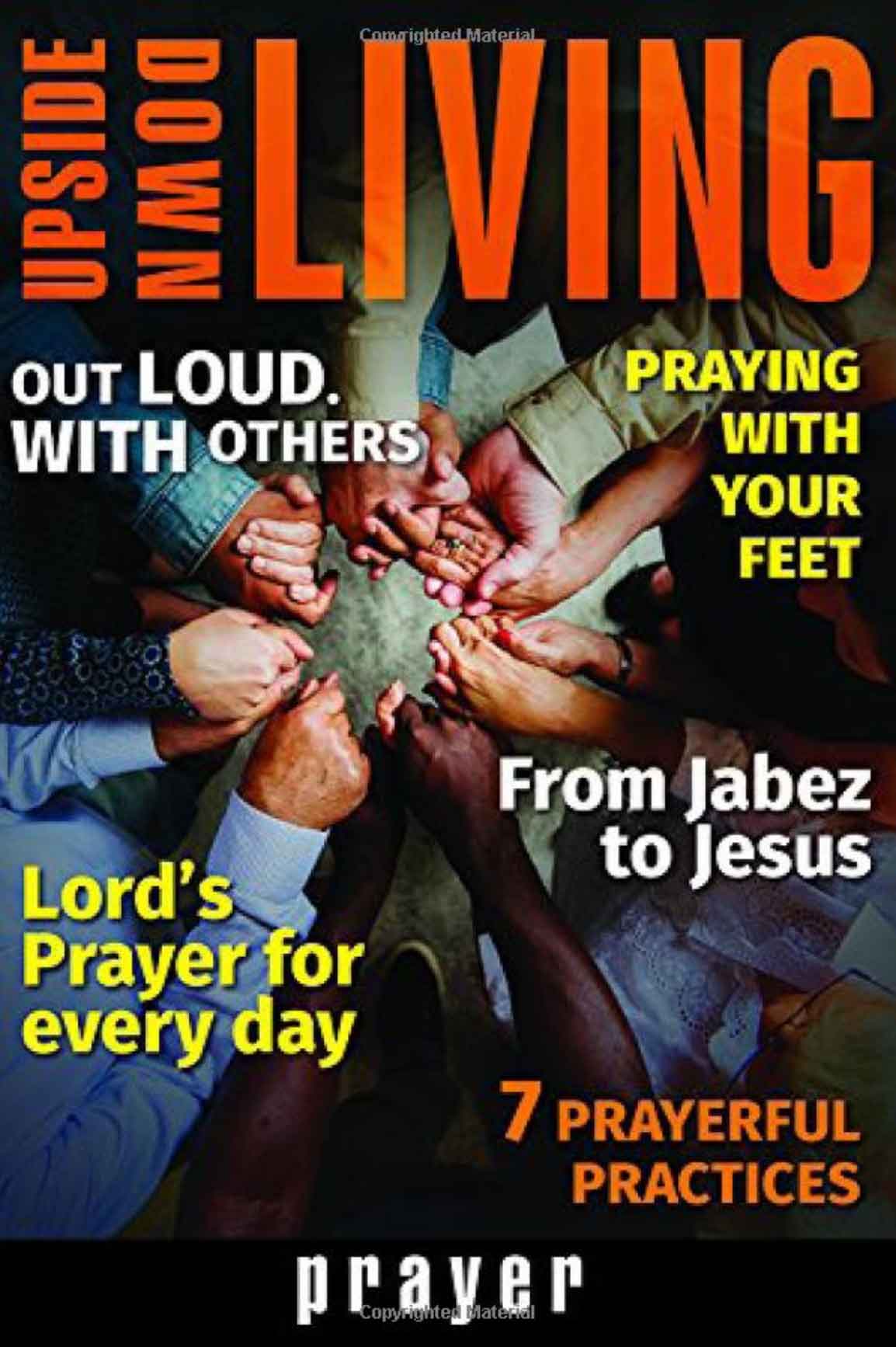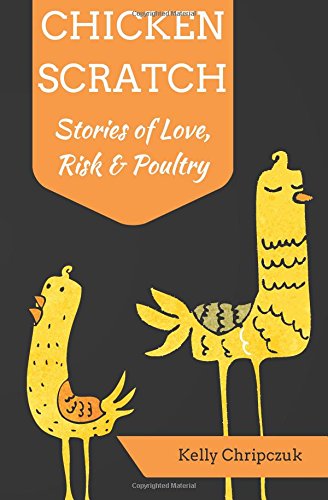Essays
Deepening Joy

This is Isaiah, age 1.5, discovering there’s candy inside of his plastic Easter egg. He was happy with the egg itself, but when I showed him what was inside, his whole demeanor changed.
Something similar happens in Spiritual Direction. The slowness and simplicity of the space offers an opportunity to open our experiences and explore what’s inside. It’s pretty common for a client to share a positive life experiences with me in a somewhat surface-level way – they know something good has happened, but they haven’t really had time to relish it, to soak it in.
Opening experiences in this way is part of the meaning-making journey and helps us absorb the depth and breadth of life’s goodness and discover meaningful ways to respond. It’s something like finding candy inside a plastic egg. (I’m pretty sure Isaiah’s response was to look for more eggs ![]() )
)
When is the last time you took time to really relish a positive experience?
With love,
Kelly
Learning to Speak Ukrainian

Dobre dien. (Good morning.)
Dobranich. (Good night.)
Dyakuyu. (Thank you.)
Shcho stalos? (What happened?)
//
I was twenty years old when I promised my soon-to-be mother-in-law I would learn to speak Ukrainian. My husband was supposed to marry a good Ukrainian woman, but he was the first of three Ukrainian sons to marry American brides. This was a blow to his parents whose ancestors fled Ukraine when Stalin came to power and settled in a Ukrainian community in Paraguay. My in-laws spoke fluent Spanish but learned to speak Ukrainian before immigrating to America where my father-in-law pastored a Ukrainian Southern Baptist Church. They spoke Ukrainian at church and home.
I felt the weight of my promise even as I made it. I bought a set of Ukrainian language tapes from Barnes and Noble. I asked my husband to repeat words and phrases over and over so I could hear the subtle differences in sound. But, aside from a few phrases, I never learned to speak Ukrainian.
I can see now that I didn’t understand what I was doing when I made that promise, in part because I didn’t understand what my mother-in-law was asking. I didn’t understand my in-law’s attachment to the Ukrainian language any more than I understood conversation at the dinner table or sermons at my father-in-law’s church. Now that I think about it – half of my own wedding was in Ukrainian, a brief sermon given by my father-in-law that I let flow over me like a river and never asked to have translated.
//
Mama (Mom)
Tato (Dad)
Bunia (Grandma)
Dido (Grandpa)
//
I didn’t understand that the commitment to the Ukrainian language was a commitment to Ukrainian history, to Ukrainian sovereignty, free from Soviet rule in church and state. My father-in-law traveled frequently to Ukraine, preaching for days on end. I remember he was just back from Ukraine when he first met our youngest boys, twins. He sat in the living room in his suit and tie and lifted the babies in his arms murmuring Ukrainian endearments.
I think about language differently now. I think of the ways language is used to build bridges and sever ties. Language is part of the lifeblood of a people, a tree whose roots lead straight to the heart. Here in America, white colonists asserted dominance over native peoples, in part, by killing their languages. To this day, these same peoples struggle to reclaim and preserve the languages that were cut off and nearly died.
Some evenings, my husband sits a room apart from the rest of us, talking on the phone with his dad. My husband’s Ukrainian has only gotten worse over the years we’ve been married. I can follow most of their conversation by listening to the English words he substitutes for the Ukrainian he’s lost or never knew.
There were so many reasons not to learn Ukrainian. It’s not the language of my husband’s heart, he learned it largely by listening and speaking. I saw how language could be a barrier, how my husband grew up in a church listening to sermons he could never fully understand. When I realized his parents spoke fluent Spanish, I wondered why we couldn’t just speak Spanish at the dinner table – that was a language I had at least studied in high school and college.
//
Dyad’ko (Uncle)
Titka (Aunt)
Brat (Brother)
Sestra (Sister)
//
I never learned to speak Ukrainian. My mother-in-law mentioned it, just once, the promise I made and didn’t keep. I apologized.
The words I’ve listed here and a few other scattered phrases, these are all I know. These words for family relations, for good morning and good night, for thank you. My children know their Bunia and Dido speak with heavy accents and sometimes can’t find the right words in English for the things they want to say. I remember the day I realized my father-in-law couldn’t read an English children’s book aloud to my children. It was as difficult for him as reading a book aloud in Ukrainian would be for my husband – a task not worth tackling for the linguistic butchery that would ensue. My father-in-law seamlessly transitioned from reading to talking and engaged with them around the pictures instead. Where one language failed, he made a bridge in another.
//
Ya tebe lyublyu. (I love you.)
//
I never learned to speak Ukrainian, this is true. I didn’t understand what I was promising, I didn’t understand what was being asked. Yet, here in my heart even these few words sit like sprouted seeds. Already, their roots are deep enough that the Russian invasion on Ukrainian soil feels like an invasion on my soil. The displaced bunias and didos, dyad’kos and titkas are my grandparents, my aunts and uncles – even these few words have been enough to plant them to my heart.
Maybe this is what it means to speak Ukrainian.
//
If this is so, then we must all learn to speak Ukrainian. We must all learn to shape our tongues, our mouths and ears around strangely shaped syllables and sounds. Even one or two words might be enough to plant a seed in each of our hearts.
I was only twenty. I didn’t fully understand the promise I was making, and I didn’t fully understand what was being asked. This is what I think of – this density and ignorance, this failure to comprehend – when I think of the young Russian soldiers manning the airplanes and tanks in the streets and cities of Ukraine. I think of Jesus’ words on the cross, “forgive them, for they do not know what they are doing.” I can believe they don’t know, don’t really know, because there have been so many times when I have failed to know, to understand.
I read a book recently about how tree roots communicate with each other beneath the surface of the earth. They send warnings upon the invasion of intrusive insects. They share water and resources, they aid and assist each other as if held together by an unspoken language in which the same words for connection exist – brother, sister, mother, child.
Even the trees know these words and their meaning.
There are so many shared words between Russian and Ukrainian, which is not to say one should replace the other but is to say there is enough there to mean something. The word for brother, for example is nearly identical. The word for mother is the same. So, when a soldier or civilian dies on either side of this manufactured human divide the last word on their lips may be the same, “Mama.” Their hearts bear the same seeds, they have just forgotten the language.
If I had known all of this then, maybe I would have made a better promise to my mother-in-law, one that I could keep. Maybe I could have promised to love her son and his people – our people – with all my heart, to speak this language of connection that grows deep roots, that builds bridges beyond words, to help, even, spread this language far and wide.
We must all learn to speak each other’s languages, if only the simplest words.
//
Dobre dien. (Good morning.)
Dobranich. (Good night.)
Dyakuyu. (Thank you.)
Shcho stalos? (What happened?)
Ya tebe lyublyu. (I love you.)
What Color is Joy?

What color is joy?
My Spiritual Director once asked me to describe the joy I was feeling. I told her it was like a big bouquet of flowers.
She then asked, “What color are the flowers?”
“All the happy colors,” I replied.
I felt a shock of joy on this cold January morning when I had the idea to pair this Bubblegum-Pink cashmere scarf (thank-you little consignment shop!) with my new Tangerine sweater. Bright colors give me such energy, such delight.
I wonder what colors you associate with joy? Are there ways you can incorporate those colors into your life this winter? Might time spend with your happiest hues be its own form of prayer?
The Courage it Takes

| The COVID-19 pandemic has pulled back so many layers of denial and illusion in our corporate and personal lives. In the forced slowing, in the unexpected losses, many of us have discovered new truths not just about the world, but about our deepest selves. In this time of revelation, some of us are realizing that “the life I am living is not the same as the life that wants to live in me (Parker Palmer, Let Your Life Speak).” The challenge we now face is this: what will we do with what we now know to be true? The Courage it Takes is a small collection of poems illuminating the courage necessary to live a life where inner and outer truths align. With one ear to the natural world and the other ear to the heart, these poems will be both resonate and revelatory for anyone sensing an invitation to a more authentic way of life. The collection is now available for sale in paperback format on Amazon and will soon be available on Kindle. Or, local folks, can contact me to purchase a paperback copy. With love and joy, Kelly Courage is contagious. – Brene Brown |
On Love & Willpower

“Only love is capable of genuine transformation. Willpower is inadequate. Even spiritual effort is not up to the task. If we are to become great lovers, we must return again and again to the great love of the Great Lover.” – David Benner in Sacred Companions
Be still, and let God love you.
With love,
Kelly
On Seeking and Finding Contemplative Experience

I write for a local ministry’s newsletter once a month. For awhile now, I’ve looked back through old writing and offered that for their publication, but this month I wanted to share something new. Problem was, I didn’t have any “fresh” contemplative experience to speak of (it’s a contemplative newsletter) and I realized you can’t force contemplative experience, you can only make yourself available. Sometimes, even that feels like it’s asking too much.
In the end, I ended up sending this poem I wrote the other day. It seems that one key to contemplative awareness is the willingness to show up where we are, as we are.
With love,
Kelly
Some mornings, it’s easier
to fill the bird feeder
than to fill my soul.
I’d rather trim
the rose bushes
than prune
my heart of its
unnecessary
attachments.
So, I do.
And when
I’m done,
the window
in front of my desk
is brighter,
more open,
and my heart
holds hope
yesterday’s
cardinal will return
and I will
watch him
as he watches
me.
-K. Chripczuk
Question to carry: What task, right in front of you, can you make yourself available to today? Is it possible you might find meaning and presence there?
For When There Is Fear
“I will always have fear, but I need not be my fears, for I have other places within myself from which to speak and act.” – Parker Palmer
“More than anything, fear blinds…” – Mark Nepo
To be a person
of faith, is to consent
to life lived blind as a bat,
to be a people of light
walking in darkness.
Faith will teach you
what you need to know
about soaring at night,
listening for the echo
of your own prayers
reverberating back to you.
The way forward is revealed,
always, in relation to the
place where you are.
– K. Chripczuk
I have felt a heaviness of fear lately. Fear for my not-old-enough-to-be-vaccinated-yet children who are back in school. Fear that schools will not be able to stay open as the Delta variant sweeps through. Fear of the life choices I’ve made – the way they’ve produced their own unyielding realities. Fear for the level of chaos, death, and destruction rampant in the world today. Maybe you have been feeling it too?
Yesterday, my thirteen-year-old son said it feels like the world is falling apart. My fifteen-year-old daughter replied, “It always feels like to world is falling apart.”
He is right. She is right. It is both – the falling apart and the fear of falling apart and the reality that both are and ever shall be. And, so, we acknowledge the fear that is with us, like the sleeping cat in the chair beside me.
But, as Palmer says, we don’t have to speak from that place. We don’t have to live from there either. While fear may be present and it is not good to pretend it isn’t so, it also can be a blinding and binding place to live from. As so, we’re invited to step out, even in the midst of great darkness. To beat our wings and soar as though even darkness cannot separate us from the love of God which is in Christ Jesus. Or, to put it another way, the darkness cannot separate us from the love of God that is with us and for us.
So, name your fears Little Ones, then set them down to rest on the table or chair beside you. Do not be afraid to step out into this dark night, for you were made to shine.
With love & joy,
Kelly
Love Leads Us Out, Love Draws Us Back Again
* This piece of writing is 6 years old. Much has changed in those years and much has stayed the same.
All four kids took turns rummaging through the large metal pot that my husband uses to store old nuts, bolts, washers, and nails. After choosing their wares, they made robots, tiny friends composed of wing bolts and screws. They each made three or four and named them based on appearance and abilities.
Then Solomon made a “weapon,” something like nunchucks, by tying nuts on either end of a piece of string. He practiced throwing it until he could get it to wrap around a tree. Then, the other kids joined in with their own string and nut creations. Later, Solomon tied a washer in the middle of the string and, pulling the two ends taunt, observed the washer spinning first in one direction, then another.
This fall, my four kids will be spread among three different schools. Two will climb on separate buses within minutes of each other, heading in opposite directions. Then the other two will ride with me in yet a third direction for drop-off.
I have three separate Back to School nights listed on the calendar, all requiring babysitting. There are two other Meet the Teacher events that include some, but not all, of the kids. I have large sheaf of papers pinned to the bulletin board filled with teachers’ names, room numbers, and other essential information.
I feel a bit like that nut tied in the middle of the string, spinning first in one direction, then another, as my kids fly out into the world. How lucky we’ve been, piled together for the summer, like those nuts and bolts in that old, metal pot. We’ve clattered around the house and yard together, merging and separating at will. With fall, we’re all flung a bit wider, but I’m grateful, always, for the bonds of love and mercy that draw us back together again.
What do you see?
I took this quick picture of our kitchen island the other day. I think it was the morning after my 9 year-olds had their first sleep-over. But, really, the picture might be much the same on any given morning or afternoon. This countertop is a magnet for clutter. I don’t have to look at it for long before I feel a rising tide of stress and overwhelm.
I see wet swim towels and pancake batter going bad.
I see my oldest son’s dirty shirt, dishes to be washed, and papers that defy categorization.
I see the lemons we keep forgetting to turn into lemonade; I see a hundred places for the flies who pass through our broken screens to land.
This is what I see and all of it is true.
But if I take a deep breath and widen my lens, I also see flowers from a friend (the product of my daughter’s first ever summer job). I see silly notes exchanged between my husband and son. I see heaps of fresh produce and a home that’s lived in. I see food for our mouths and evidence of friends (for our souls) and the fulness of life lived in the here and now.
This is what I see and all of it is true.
The clutter is real, as well as the stress I feel in trying to tame it. The presence and abundance are real too. Both. There is light and darkness here on this kitchen island – blessing and curse, abundance and scarcity.
I don’t seek to pretend one isn’t real and cling to the other. I’m not after some pollyanna point-of-view. I’m hoping instead to practice, now and again, the art of widening my lens.
What more is there to be seen? What’s there but not apparent at first glance? How does a wider lens allow a more deeply grounded sense of reality?
Quiet Days
Words can satisfy your mind, but silence satisfies your soul. – Nitin Namdeo
Join Spiritual Director, Kelly Chripczuk, for one, two, or all three Quiet Days this fall. These retreats are designed to be low-program and offer ample time and space to dwell in the depths. Whether you need rest, time in nature or space to journal and pray, Quiet Days offer a container for you to come as you are – even, and perhaps especially, if you don’t know what you need.
Sample Schedule (subject to change):
9:00 Arrive and Settle In (beverages and snacks available)
9:30 Welcome and Centering Prayer or Lectio Divina
10:00 Open Retreat Time
12:00 Lunch (BYO, lunch may be taken in community or in silence depending on your preference)
1:00 Open Retreat Time
3:00 Closing Graces
3:30 Departure
When: Fridays September 3, October 1, and November 5
Time: 9:30 – 3:30
Location: Still Waters Retreat, Carlisle, PA
Cost: $40 for one day, $100 if you register for all 3 days (please contact Kelly if cost is a barrier)
8 Spaces Available
Registration deadline: Monday, the week of the retreat
* Special Notes *
Quiet Days emphasize time for silence and solitude and will be held in a contemplative atmosphere. Though you will hopefully see and meet some new faces, the primary aim of the day is to offer time to connect to yourself and listen for the voice of the Divine. If you’re looking for conversation or intellectual stimulation, these days won’t be a good fit for you.
ALL are welcome to these days, regardless of race, gender or sexual orientation. Contact me at Chripczuk.kelly@gmail.com with questions.
Register using the secure Paypal link or email me to inquire about other forms of payment.
Summer Grace (a collaborative poem)
Summer Grace
is a handful of blueberries
dropped from the bush to your hand.
(Some things are given, not
grasped.)
is a few days’ reprieve
from sweltering heat.
In coolness, freedom
and possibility blossom.
is the tireless robin
who arrives again and again
with worms for hungry chicks.
Her energy, like God’s, unfailing.
is an early morning
filled with birdsong –
the sweet natural rhythm
of living things calms chaos,
quiets the spirit.
is a neighbor
reaching across the divide
to offer support,
an incarnation
of love divine.
is a grown child
turned handyman,
is a surprise reunion,
and elderberries
growing and yielding
fruit where no one planted.
is offering space –
is having space to offer –
to a group in need, is
a barn filled with food,
a welcome harvest for hungry
souls.
– a This Contemplative Life Community composition
I’ve started a small private community over on fb, connected to my business page. It’s a slow space where participants are invited to take a “long, loving look at the real.” Visit the link above to lean more and asked to be connected. The poem above grew out of members’ responses to a question on this page: Where are you finding grace this summer?
Embodied Experiences Expand Perspective (I Swam Every Day)
I decided I would swim every day we were there.
That was Sunday night, after we arrived and ate dinner at the little cottage we were renting along a private lake. The kids hit the water that night, but John and I sat on the shore watching – grateful to have arrived, grateful for a moment’s distance between us and four kids.
I didn’t swim that night, but I promised myself I would, every day, for the rest of the week of vacation. And I did.
I swam because I remembered, vaguely, my spiritual director saying something about swimming being a spiritual experience. I swam, despite the fact that my daughter called out in semi-sincere astonishment every time I slipped off of my teal green float to glide through the murky brown water.
“Look! Mom’s swimming!” she cried, as though she had spotted an endangered species or witnessed a rare comet shooting through the night sky. Every afternoon, I swam, and my kids circled me like piranhas, staying within a five-foot radius despite the depth and breadth of a 50-acre lake at their disposal.
//
Swimming immerses us in an alternate reality. The body, heavy on shore, is lighter and sleek. And yet, a swimming person often looks very close to drowning. The human body, even afloat, sits low in the water. The open mouth, pulling in air, hovers just inches above the surface.
Swimming reminds us that the difference between sinking and floating lies in the smallest adjustment of posture. In the water, we don’t have to do great things to make waves that ripple far and wide.
Maybe some of this is true on land as well.
//
I swam every day of our summer vacation, even taking my turn at jumping off the plastic floating dock, plunging into the cool darkness, and coming up into the light with my sinuses filled with water. Swimming back to shore, my head low like a crocodile, I remembered the little girl I once was, the one who “swam like a fish” in the cool, brown lakes of central New York. I thought about how major changes in movies and books are so often heralded by immersion in water, a baptism via rain or river. I prayed quietly then, words slipping through my heart as my body slid through the water, that some change would cling to me, some doorway to a new beginning, even as I bid the lake farewell.
I swam every day.
Questions to Carry: Is there a change you long for, a baptism into something new you can’t quite name? Is there some way you could pair your longing with a small, intentional, embodied practice – like swimming or sitting on a swing or gazing at a flower? Perhaps your perspective would be broadened if you committed to one small immersive experience on a daily basis – even just for a week.
They Left Their Nets Behind
From that time Jesus began to proclaim, “Repent, for the kingdom of heaven has come near.” As he walked by the sea of Galilee, he saw two brothers, Simon, who is called Peter, and Andrew his brother, casting a net into the sea – for they were fishermen. And he said to them, “Follow me, and I will make you fish for people.” Immediately they left their nets and followed him. . . Matthew 4:18-20
Inheritance is the word we use to describe the things, tangible and intangible, that are handed down from generation to generation. I imagine a fishing net, in the time of Christ, was one of those things cast down from father to son. A son didn’t choose to be a fisherman so much as he was caught in the net, entangled in its destiny like his father and his father’s father before him.
I imagine the women in each family – wives, daughters, sisters – mended the nets, perhaps winding linen fibers into rope. Everyone’s hands worked the family nets; everyone’s mouths fed on their harvest. The net, like the sea and the fish in it, stood at the center of life – a mingling of the past and the present, a clear path leading to a predetermined future.
Simon and Andrew’s hands likely bore the mark of their nets. Their faces and hair were shaped by the wind and sun on the Sea of Galilee, and so also their hands would have been calloused and scarred from gathering and tossing the heavy, wet fibers.
Yet when Jesus came, announcing the kingdom of heaven, Simon and Andrew left their nets behind.
It’s almost as though Jesus, walking along the shore, saw them struggling there like a pair of fish tangled with no means of escape. Then, with ten simple words, Jesus cut them free. “Follow me, and I will make you fish for people.”
The possibility of a break with the past emerges.
The door to an unimagined future swings wide open.
They left their nets behind.
The callouses, the scars, would stay to remind them. But, they left their nets behind.
Questions to Carry: What fixed ideas or practices have you blindly inherited? What might you be called to leave behind as you follow Jesus? Ask God to help you discern what no longer serves you well. Listen for Jesus’ own words or invitation to you.
Little House Updates and Virtual Photo Tour
My husband and I made some renovations to the Little House this past winter. My goals were to make the building more functional, spacious, and welcoming for myself and those who meet and gather here. This past week I returned to meeting with Directees in-person and it was such a joy to welcome people to this space again.
If you live in Central PA and are interested in exploring Spiritual Direction, I’d love to have you stop by for a conversation. I also meet virtually with individuals from all over the world. Interested? Email me or comment below to begin your journey. (Chripczuk.Kelly@gmail.com)
Virtual Tour:
This is the Little House, my private office and meeting space. It’s situated just off our driveway, between our main house and garage. This spring, my husband built this bench and planters to make the entrance more welcoming.
We were able to make a new seating area (see photo at beginning of post) by removing this old cooktop stove and the cabinet. For now, the wall and fan vent hole have been covered with plywood and painted one of my favorite shades of blue. The whole project was briefly stalled when we got distracted by the idea of placing a little round porthole window in that vent hole. My husband also built the ladder bookshelf (see photo above) that allows me to keep my hoard of papers and books near but not on top of my desk at all times.
Another big space-saving change included removing a built-in desk that stuck out of this closet (below) and installing a closet door. The closet still offers storage for books and files, but removing the unused desktop bought me several square feet of floor space. It’s hard to explain in pictures, but one dream I have for the future is removing this corner entirely and installing a loft bed for over-night guests.
One of my favorite updates is the new writing desk my husband built (below). After using a child-sized desk for the past seven years, this spacious desk (with my own real office chair) comes as a welcome relief. Plus, I was able to paint it one of my favorite colors: Magenta!
I was planning to sell my old desk to cover the cost of some of these updates, but when I turned it around to move it out of the Little House, I noticed it makes a perfect little altar-table (see below). Now it’s just right for a candle, glass of water, and poem or two.
I also invested in new seating, finally updating my old, oversized Ikea chairs with these spiffy blue Mid-Century modern chairs (below) found on Facebook Marketplace. I’m still on the look-out for new-to-me seating that will be more comfortable than these current chairs. Currently, the Little House comfortably accommodates small groups of about 5-6 adults (message me for details about reserving the space for your group to use).
This little corner (below) is the last thing visitors see when leaving the Little House and the painting sums up my heart completely. I love having this space for reading, writing, and praying. But most of all, I love offering a space of peace, joy, love, and rest in the midst of this busy overwhelming world. I hope you’ll visit some day – in person or online.
Questions to carry:
What kind of space does your heart long for? How do you reflect the spirit of God in the spaces you’ve been given?
In the Place Where You’d Rather Not Be
Learn from the things that are already in the place where you wish you were not. – Padraig O’Tuama in The Shelter, (p.9)
A dead lightbulb has been sitting on our kitchen island for more than a week. Before that, it was in the light fixture above our dining room table for more than a month, dead. I unscrewed it in a burst of this room is too dark and depressing, I’m going to do something about it energy. That was at least a week ago and it now sits on the kitchen island waiting for someone who’s going to the store that sells the right kind of bulb to remember to take it along for comparison and finally buy a new one.
That lightbulb is driving me crazy.
That lightbulb is revealing things about the place I’m in that I would rather not know.
(Don’t worry, the lightbulb isn’t telling me I’m a failure, it’s not that kind of bulb.)
When I listen closely, though, the lightbulb has a lot to say. It tells me there’s a lot going on in my life right now. So much, that little details are certain to have to be let go. It invites me to pick my priorities, again. It helps me to see that having food on the table is a triumph in itself and one good conversation that invests in the future shines a light brighter than any bulb.
I’m in a place I don’t want to be in, again. A place of many and much, a place of I didn’t realize we were going to have to deal with this now, but here we are in the middle of it anyway.
Following Padraig’s advice, I feel my heart muscle stretch to open to this new place, this new challenge, this here and now. Once it’s open, once I accept what is, I can begin to learn. I can begin to welcome the belief that even in this place, what we need is here. And so I begin by listening to the lightbulb, by “listening to the things that are already in the place where you wish you were not.”
Finding God in the Appliance Section of Lowes
It seems
a little scarier and
the sky may
be falling. But
even we can
change
when
we discover
kindness and compassion.
– K. Chripczuk (found poetry)
As I mentioned in a recent video on my fb page, our washing machine died over the weekend. It was the last straw in a series of frustrating, flummoxing events. Although we have the money to replace it (thank you, thank you) it’s not an easy fix and certainly not a project we would choose to tackle this week.
All I wanted to do Monday morning was nestle into the Little House – to read, pray, practice yoga and return to my own sweet center. But what I needed to do was pick up my son’s negative Covid test, drop him at school, and then look at our laundry closet and make decisions about stacking or not, used or new, and (because we live in an old, old house) which walls or outlets or plaster we might want to move or replace in the near or distant future.
These were not conversations I wanted to be having, not decisions I wanted to be making. I didn’t want to be googling “best dryer brands” or messaging people on fb marketplace for the dimensions of their used washing machines. And, even though a new washing machine is a miracle in itself, I really didn’t want to be riding in the old red pickup truck to Home Depot (where everything was on back order) or Lowes.
I struggled to see how God or spirituality might be part of the day I found myself in. But I tried to stay present. I tried to have patience with the sales woman who could not get us what we wanted when we wanted it. I tried to remember her humanity as well as my own.
I tried, again, to find patience for the salesman at Lowes, who was a bit of a talker ,when all I wanted to know is which items were in stock. Looking back, I can see that it’s hard to connect with people, hard to look them in the eye, when you don’t want to be where you are, don’t want to connect with your own circumstances or yourself.
I’m sure we seemed worried and stressed, but we lightened up a bit once a decision was made. The salesman got chattier still when he found out where we live and he somehow rambled on to the topic of pets, cats in particular. In the end, holding our receipt hostage, he told us a story about “the best cat we ever had,” a small cat name Pickles.
Pickles, he told us, was procured one year when he and his wife went to pick out a tree at a local Christmas tree farm. “There was a little girl wearing a long prairie-like dress,” he said, gesturing with his hands as if to paint the dress before our eyes. “She had a little basket with a kitten in it.”
Again, he gestured with his working-man hands, creating an imaginary basket. Then, he placed one hand, palm up, in the center of his chest, just where someone would hold a wee kitten.
“She was this little,” he marveled. “She fit right in the palm of my hand. Except for her tail, hanging over the side. Except for her tail, she was just that big.” Again, he gestured, showing with his other hand how the sweet little tail would have draped out over his wrist. Pickles lived to be 17 years old and, finally, just stopped eating. The vet told them to let her be, it was “just her time.”
Isn’t it something, how that cat story showed up so unexpectedly right in the middle of our day? Our salesman went to a farm looking for a Christmas tree and came home with a kitten. We went to Lowes looking for a washing machine and came home with a love story.
I watched the salesman’s hands eyes as he wove his tale, they were cinnamon brown with gold flecks. Even though the day was harder than I wanted and, in some ways, the sky did feel like it was falling, this man and his story helped me find what I was looking for all along. Sometimes all it takes is a story and a stranger’s eyes, to lead our hearts back home.
The Power of Touch
This year, as I journey through Eastertide (the 50 days between Easter and Pentecost), I’m struck by the importance of touch in Jesus’ post-resurrection encounters.
During this time last year the reality of the pandemic became clear and people, the world over, were forced to come to terms with a loss of touch. No more handshakes, no hugs, no holding the hands of our dying loved ones. In this way, many of us have experienced for a year or more, what Jesus and his followers experienced during the three days he lay in the tomb.
Theologians note the theme of touch is important in these gospel accounts because the disciples need to know that Jesus isn’t a ghost, that physical, not just spiritual resurrection is at the heart of what’s transpired.
But I’m seeing things from a different angle in this mid-pandemic year. The importance of touch post resurrection, reminds me that Jesus had close physical relationships with people throughout the entirety of his life and ministry. No only did he regularly touch the sick and untouchable, he also reclined with his disciples at dinner tables. He bumped knees, patted shoulders. He hugged. He shared physical camaraderie with those closest to him.
So it’s no wonder that post-resurrection experiences include his body as well. Jesus shows his hands and side to the disciples, he eats fish and wipes his mouth with the back of a scarred hand, he blesses bread and tears it in two. He kneels on a sandy beach, arranging drift wood to build a fire, cooking fish on pronged sticks then distributes it among the disciples just back from fishing.
In these stories – in Mary Magdalene’s apparent bear hug for Jesus in the garden, in tactile Thomas’ brazen declaration about his need to not just see, but touch the risen Christ, and in Jesus’ free acceptance and participation in it all – I find affirmation of the pain and reality of our loss of touch in this past year. I find affirmation that touch and bodily presence matters. I find myself knowing that Jesus understands the loss we’ve experienced and our longing and excitement at the potential to return to normal physical interactions.
For this, I am grateful.
* * *
For Contemplation:
How do you respond to fact of Jesus’ bodily existence? Read a few of the pos-resurrection narratives and notice what actions Jesus is performing – is he walking, talking, touching? In what ways is his physical body present?
Spend some time in prayer with Jesus. Imagine him physically present. How does he sit – beside you? Across from you? In what ways does Jesus’ physical presence impact the way you are with your own body?
Compassion: for Hunger and Desire
Photo by Misty Ladd on Unsplash
I refilled the bird feeder outside my office window this morning and the birds returned. A squirrel arrived as well, as soon as he saw the feeder was full, and I banged in the window and cracked it open a few inches causing him to leap and run.
Like that squirrel, I too have wandered roads I shouldn’t this morning, poking down paths online and in my mind that always leave me feeling anxious and alone. I wasted precious time checking a former colleague’s website, a place where my name used to be, watching an intricate web of networks that seem to be continually woven around my exclusion.
I’ve worn bare the paths to these empty feeders of comparison, to the places where others gather that are, quite simply, not for me. And yet, the hunger for belonging drives me. The loneliness is deep.
Maybe I need someone to bang on a window nearby. Shout, “That is not the place for you!” while I scurry in haste back home to a den or nest tucked high in a tree.
Each of us must be what we are.
Perhaps this is part of the reason I bristle so at the squirrel’s intrusion – “This feeder is not for you!” Yet, I feel compassion too – for the way he wraps his whole body around his heart’s desire, for the clever climbing, scheming, leaping to be fed, for the hunger, the need, that drives him so.
Everything You Need
This morning, I overheard my daughter reassuring our highly anxious indoor cat. “You have everything you need, Perfect,” she said.
Due to her anxiety, Perfect mostly lives in my bedroom – napping on the bed and birdwatching through the glass of eight large windows. She rarely meows, refuses to sit in a lap, and keeps to herself most days. But she does get quite communicative sometimes, at the beginning or end of the day.
If you happen to be upstairs at such a time, she’ll catch you in the hallway with a wide-mouthed but nearly silent, “eh.” Hardly loud enough to hear, this is her most urgent cry. If you respond by making eye contact, she will lead you down the hallway, looking back frequently, urgently checking to be sure you’re following, until she reaches my bedroom where her water and food bowls sit.
“Eh!” she declares, when you reach her bowls. She looks up to be sure you see what she means and rubs against your legs and the doorframe with her tail on high alert. Most often she already has food and water, plenty.
I don’t know why she leads us there, so urgently, like Lassie leading Timmy’s parents to the well where Timmy has once again fallen in and is in danger of drowning. I often hold extended conversations with Perfect there in the doorway, with her food and water bowl nearby.
“What?” I ask. “What do you need?”
“Eh,” she says in reply. Sometimes she just opens her mouth in the shape of a meow and not a single sound comes out.
This, I know, is what happened with my daughter this morning. Perfect found her in the hallway, getting ready for school, and led her urgently to the bowls, which we already full.
“You have everything you need, Perfect,” my daughter assured her.
The compassion in those words, the reassurance touched me deeply. I was reminded of the well-known Wendell Berry poem, The Wild Geese, in which geese seen flying overhead invite the poet and reader to return to trust; to return to the “ancient faith” in which it is known that “what we need is here.”
I have seen this poem, or excerpts of it, shared so frequently online and at retreats. It offers a reassurance we so often need. It offers an invitation to trust and, somehow, manages to convince us that such trust (as is so often exhibited in the natural world) is not foolhardy.
Those words are a comfort to me, but I wonder how they might sit with those who truly lack basic needs. What if, say, Perfect’s food bowl was empty, her water bowl bone dry?
Wendell’s words don’t hit me, though, as a pat response to urgent need. His words invite us, unmet needs and all, to a trust that runs deeper and wider than our current abundance or lack. Maybe he’s hinting at something like those familiar marriage vows – for richer, for poorer, in sickness and in health – offering an affirmation that there is a current of love that runs deeper than any current circumstance.
Maybe that’s something of what I read into my daughter’s words this morning – a comment, not just on the Perfect’s current situation, but on the truth of her life. “You have everything you need, Perfect.”
Everything you need.
May it be so.
A Sense of Hope
It was 55 and sunny one day last week. The grass was too soggy to walk our usual loop around the yard, but my husband and I did take a mid-day trip back to check on the beehives. This is the time of year when bees are most likely to starve. Hungry new brood are hatching, and pollen sources remain sparse, so my husband loaded their hive boxes with store-bought pollen patties and large, white blocks of homemade fondant.
The sun and warmth had the bees spring cleaning, active and filled with life. They rushed in and out of the hive, nearly clogging the entrance in their hurry. Some of the returning bees’ legs were coated in heavy yellow pollen. We lifted the hive’s roof and watched some gorging on fondant and pollen. Other bees worked steadily, carrying dead bees out of the hive and dropping them in a large pile just beyond the entrance.
The bees put me, also, in the mood to tidy and prep. I went to work cutting back the remains of last year’s perennials from a small flower bed, making way for the green that’s already breaking through.
Later, I met a friend for a walk at a park just down the road. There were people – old and young – walking dogs, biking, pushing baby strollers. They buzzed and looped the parks trails pouring from their houses and cars, like the honeybees pouring from their hives.
I felt such love for the people I saw walking, jogging, sitting out in the sun and warmer air. I felt proud of them for getting out, for making it nearly to this winter’s end. A sense of relief was in in the air – a much needed sense of hope.
Books
Prayer can easily become an afterthought, a hasty sentence, a laundry list of all the things we want. But what if prayer is a time to find out what God wants for us–and for our world? What does it mean to pray that the kingdom would come here and now as it is in heaven? Explore these questions in this study, and learn prayer practices that nurture intimacy with God and sensitivity to God’s dream for the world.
Follow this writer, spiritual director, and mother of four as she dives into the deep end of chicken farming and wrestles with the risks and rewards of living a life she loves. At turns hilarious, thoughtful, and always compassionate, Chicken Scratch will change the way you see the mess and chaos involved in living life to its fullest.






